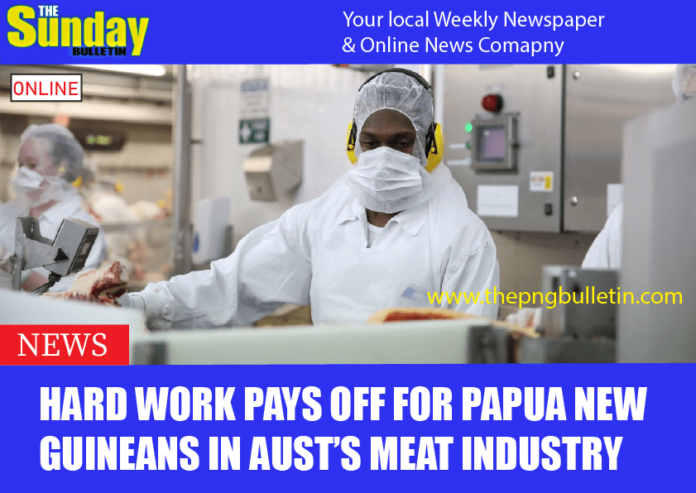FOUR years can feel like a lifetime away from family, but for a growing number of Papua New Guineans, it’s a sacrifice they’re willing to make to secure a better income in Australia.
Among them is Susanna Hape, who works in an abattoir in Queensland through the Pacific Australia Labour Mobility (PALM) scheme. Each night, she connects with her family over WhatsApp from her shared accommodation, where she lives with other Papua New Guinean workers.
“It can be really hard, but I’m doing this for them,” Susanna, 38, shares.
“I miss them so much, but being here means I can sustain myself and my family financially and support my two nephews with their school fees since their mother passed away last year.”
Susanna is part of a rising wave of Papua New Guinean women who, through the PALM scheme, are taking on roles in traditionally male-dominated industries like meat processing.
Reflecting on her life back home, she says, “Before coming to Australia, I did chores around the house – cooking, cleaning, laundry, school pick-up, and drop-off. The work here is hard, but I’ve been able to make good money, explore new places, and gain new skills.”
A typical shift in an Australian meat processing plant begins before dawn, with tasks that can be physically demanding, including heavy lifting, bending, and standing for extended periods. Other responsibilities involve counting and arranging packages, recording data, and cleaning machinery and equipment.
For Susanna and others like her, the experience, though challenging, is a pathway to financial independence and a better future for their families back home.

